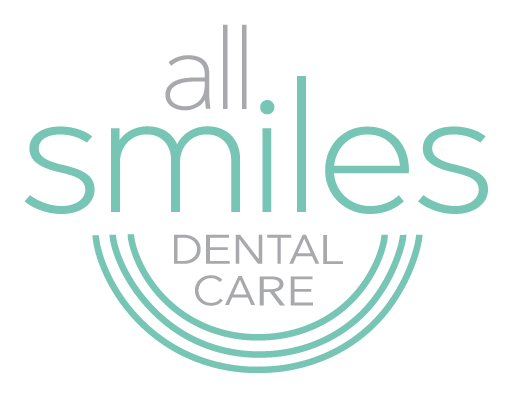How Stress Affects Your Oral Health and What to Do About It
How Stress Affects Your Oral Health and What to Do
We often talk about stress in terms of its impact on our mental well-being, sleep patterns, and heart health. Have you ever considered what it might do to your teeth and gums? The connection between your mind and your mouth is stronger than you might think. All Smiles Dental Care explores the surprising ways stress affects your oral health, from grinding your teeth to changing your dietary habits. Understanding this link is the first step toward managing its effects and maintaining your mental and dental wellness.

The Link Between Stress and Oral Health
When you’re under stress, your body releases hormones like cortisol, which can trigger a cascade of physiological responses. This “fight-or-flight” mode can lead to inflammation throughout the body, including in your gums. High cortisol levels can weaken the immune system, making it harder for your body to fight off the bacteria that cause gum disease.
Stress often leads to changes in our daily routines and behaviors. We might neglect our usual brushing and flossing habits, or turn to comfort foods for relief. This combination of physiological changes and behavioral shifts creates a perfect storm for dental problems.
Common Oral Health Issues Caused by Stress
Stress can manifest in your mouth in several damaging ways. Some common oral health issues caused by stress include:
- Bruxism (Teeth Grinding): Many people clench or grind their teeth unconsciously, especially while sleeping, when they are stressed. This constant pressure can wear down tooth enamel, cause teeth to crack or chip, and lead to jaw pain or Temporomandibular Joint (TMJ) disorders.
- Gum Disease (Periodontitis): A weakened immune system makes your gums more vulnerable to the bacteria in plaque. This can lead to gingivitis (early-stage gum disease) and, if left untreated, progress to periodontitis.
- Canker Sores and Cold Sores: While their exact causes are complex, both canker sores and cold sores are often triggered by stress, which compromises the body’s ability to keep these issues at bay.
- Dry Mouth: Some medications used to manage anxiety or depression can cause dry mouth. Stress itself can also lead to this condition. Saliva is crucial for washing away food particles and neutralizing acids, so a lack of it increases your risk for tooth decay.
- Poor Diet and Dental Hygiene: You might find yourself skipping your evening floss or reaching for convenient, unhealthy snacks for dental health. This shift in diet and dental hygiene can rapidly accelerate dental problems. Consuming sugary snacks and drinks contributes directly to tooth decay from sugar.
How to Recognize Stress-Related Oral Health Problems
It’s important to pay attention to your body’s signals. You might be experiencing stress-related oral issues if you notice:
- Waking up with a sore jaw, a dull headache, or tooth sensitivity.
- Visible signs of wear on your teeth, such as flattened or chipped edges.
- Gums that are red, swollen, or bleed easily when you brush.
- An increase in the frequency of mouth sores.
- Persistent bad breath or a bad taste in your mouth.
What to Do About Stress-Related Oral Health Issues
If you recognize these signs, taking action is crucial. The solution often involves a two-pronged approach of managing your stress and seeking professional dental care. This is how to approach stress-related oral health issues:
- Consult Your Dentist: Be open with your dentist about the stress you’re experiencing and the symptoms you’ve noticed. We can diagnose the specific problem and recommend a course of action. For teeth grinding, a custom-fitted nightguard can protect your teeth from further damage while you sleep.
- Focus on Stress Management: Incorporate stress-reducing activities into your daily routine. This could include exercise, meditation, yoga, deep breathing exercises, or spending time in nature. Reducing your overall stress level is the most effective long-term solution.
- Recommit to Your Oral Hygiene Routine: Make a conscious effort to brush twice a day and floss daily, no matter how busy or tired you are. Set reminders on your phone if needed. A consistent routine is your best defense against plaque buildup.
- Be Mindful of Your Diet: When you’re stressed, it’s easy to reach for the worst foods for teeth. Try to limit sugary treats, processed carbohydrates, and acidic foods and oral health drinks like soda and sports drinks, as these are foods that damage enamel. Instead, choose healthy snacks like cheese, nuts, and crunchy vegetables.
Preventing Stress-Related Oral Health Problems
Prevention is always better than treatment. You can protect your smile by being proactive the following ways:
- Schedule Regular Dental Checkups: Don’t wait for a problem to arise. Regular visits allow us to catch early signs of stress-related damage and provide preventive care.
- Practice Mindful Jaw Relaxation: Throughout the day, check your jaw position. Your teeth should be slightly apart. If you find yourself clenching, consciously relax your jaw muscles.
- Stay Hydrated: Drink plenty of water to combat dry mouth and help rinse away food particles and bacteria.
Contact All Smiles Dental Care
All Smiles Dental Care understands stress is an unavoidable part of modern life, but it doesn’t have to dictate the health of your smile. By understanding the connection between stress and your oral health, you can take proactive steps to mitigate its effects. Are you concerned about how stress might be affecting your teeth? Schedule a consultation with our supportive dental team today.
Frequently Asked Questions
- Can stress actually cause my teeth to hurt? Stress can lead to unconscious teeth grinding and clenching, which puts immense pressure on your teeth and jaw muscles. This can cause tooth pain, sensitivity, and headaches. An infection like an abscess, which can also be exacerbated by stress, will cause significant pain.
- Is a nightguard the only solution for teeth grinding? A nightguard is a highly effective way to protect your teeth from the physical damage of grinding, but it doesn’t stop the grinding itself. The best long-term approach is to combine a nightguard with stress-management techniques to address the root cause of the habit.
- How does my diet during stressful times affect my teeth? When stressed, many people crave sugary or acidic comfort foods and drinks. These are some of the worst foods for teeth because they feed the harmful bacteria that produce acid, leading to enamel erosion and cavities. Maintaining a balanced diet and dental hygiene is crucial, even when you’re under pressure.
